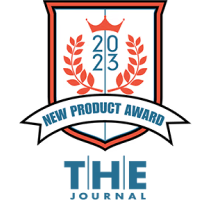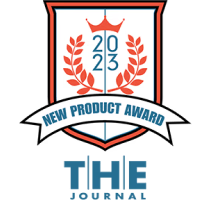Elevate your learning
Where effort meets excellence






What can we help you with?
Experience You Can Trust
43+
Years in Industry
77M
Books Sold
408M
Students Helped
4.6/5
Rating on Google
Services for Every Need

SAT 1400+ Course
Master the SAT with our complete package.
Learn MoreSAT 1500+ Tutoring
Top-tier tutoring designed for students aiming for an elite score.
Learn MoreACT 34+ Tutoring
Rigorous tutoring designed for students aiming for a top 99th percentile score.
Learn MoreCollege
Admissions
Counseling
Personalized guidance for every step of the admissions journey.
Learn MoreFind Your Ideal School
Explore thousands of college profiles, access rankings, and receive expert guidance

Our Free Resources
Practice TestsCheck your score and discover how you can improve!Admission TipsGet expert advice on getting into the
|
|---|
Proven Results

Joseph L.
MCAT
Essentially, I had no idea how to study for this test before taking the prep course. I was intimidated and didn't know where to start. Definitely, I knew exactly how to study for the test after completion of the Princeton Review course.


Matthew B.
MCAT
The Princeton Review gave a comprehensive overview of the test subjects and consistently helped me refine my skills. My practice test scores were 501, 505, 512, and 518 showing how my goal was achieved gradually over the course.


Erik H.
SAT Essentials
Learning how to read math word problems and how to do the more difficult ones was what helped me get a perfect 800/800 on the math part of the SAT. The more useful part for me was the explanation on what types of questions there would be on the test.


Aleksandra B.
SAT 1400+
Thank you so much. I couldn't be happier with The Princeton Review. You guys helped me reach my highest potential. I just think the amount of prep was perfect. It's just organized very well and there are always available resources.


Mikealani P.
SAT 1400+
The reading section was my greatest improvement and pushed me over the edge into my 1400+ score. I must also give credit to my teacher Robert Storrs. I truly believe I wouldn't have performed so well on the SAT without his help.


Maria H.
MCAT
Everything about The Princeton Review - content, instructors, customer service - is zero stress. The content is accessible, not unnecessarily in-depth, but thorough (with loads of practice on every specific topic).


Joseph L.
MCAT
Essentially, I had no idea how to study for this test before taking the prep course. I was intimidated and didn't know where to start. Definitely, I knew exactly how to study for the test after completion of the Princeton Review course.


Matthew B.
MCAT
The Princeton Review gave a comprehensive overview of the test subjects and consistently helped me refine my skills. My practice test scores were 501, 505, 512, and 518 showing how my goal was achieved gradually over the course.


Erik H.
SAT Essentials
Learning how to read math word problems and how to do the more difficult ones was what helped me get a perfect 800/800 on the math part of the SAT. The more useful part for me was the explanation on what types of questions there would be on the test.


Aleksandra B.
SAT 1400+
Thank you so much. I couldn't be happier with The Princeton Review. You guys helped me reach my highest potential. I just think the amount of prep was perfect. It's just organized very well and there are always available resources.


Mikealani P.
SAT 1400+
The reading section was my greatest improvement and pushed me over the edge into my 1400+ score. I must also give credit to my teacher Robert Storrs. I truly believe I wouldn't have performed so well on the SAT without his help.


Maria H.
MCAT
Everything about The Princeton Review - content, instructors, customer service - is zero stress. The content is accessible, not unnecessarily in-depth, but thorough (with loads of practice on every specific topic).

4.6 out of 5 based on 488 Google reviews

for Testing Prep Solution
"Sophisticated test-prep technology for a simple experience that meets students where they are and brings them to where they need to go. Several modes, resources, expert-led videos, interactive reports - adds up to smart help." - EdTech Digest

for AI-Based Tool for Tutoring
"The Princeton Review's "AI for Learning" resources, which include its AI College Admissions Essay Counseling and AI Homework Essay Feedback tools, were chosen for a Platinum (highest level) Award by both Campus Technology and THE Journal in the category, “AI-Based Tool for Tutoring."
 for Testing Prep Solution"Sophisticated test-prep technology for a simple experience that meets students where they are and brings them to where they need to go. Several modes, resources, expert-led videos, interactive reports - adds up to smart help." - EdTech Digest |
|---|
 for AI-Based Tool for Tutoring"The Princeton Review's "AI for Learning" resources, which include its AI College Admissions Essay Counseling and AI Homework Essay Feedback tools, were chosen for a Platinum (highest level) Award by both Campus Technology and THE Journal in the category, “AI-Based Tool for Tutoring." |


